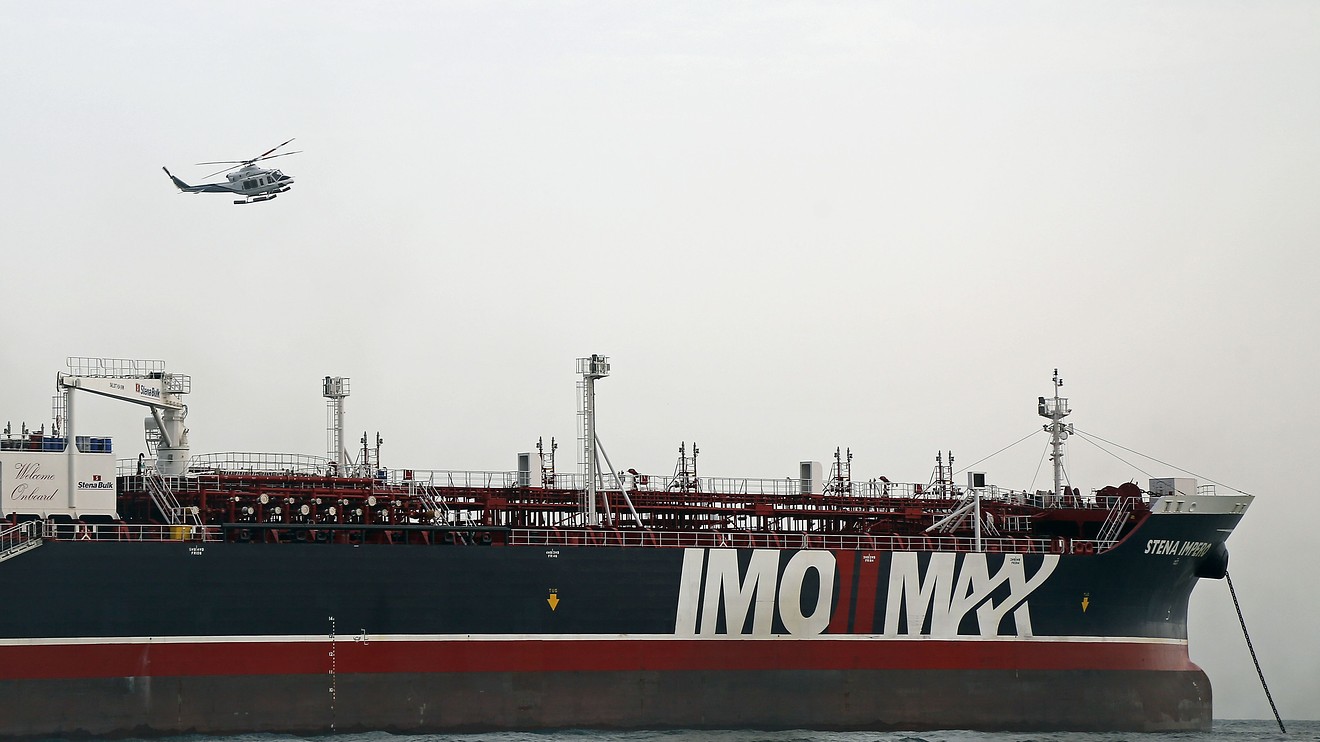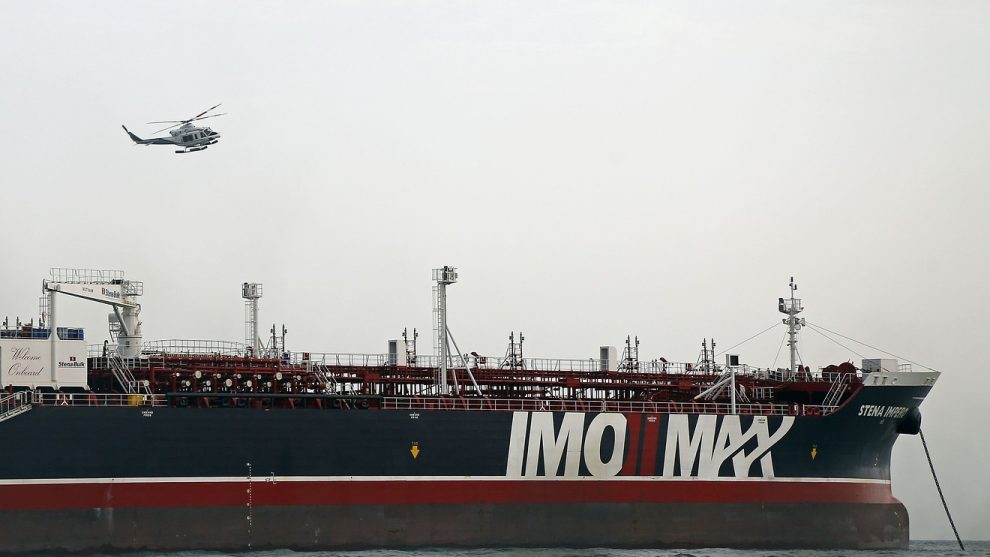
Oil prices moved higher on Monday, as investors watched an increasingly complicated situation in the Persian Gulf after Iran late last week seized a British-flagged tanker, and as the U.K. faces a change in leadership.
“The latest ratcheting up of tensions in the Persian Gulf with the seizure of a U.K. oil tanker has only led to a nominal gain in [West Texas Intermediate crude] though, as would be expected, a firmer gain in Brent,” said Marshall Steeves, energy markets analyst at IHS Markit.
“So far, these events have not shut the Strait [of Hormuz] and the impact on oil exports has been muted,” he told MarketWatch. “If that changes and exports are significantly constrained, then a more substantial oil rally would be the result.”
West Texas Intermediate crude for August delivery CLQ19, +0.97% rose 62 cents, or 1.1%, to $56.25 a barrel on the New York Mercantile Exchange. Prices for the most-active August contract, which expires at the day’s settlement, settled 7.6% lower last week, the largest weekly percentage loss since the week ended May 31, according to FactSet data. September WTI oil CLU19, +0.91% which will become the front-month contract, traded at $56.29, up 53 cents, or 1%.
Brent crude BRNU19, +1.38% for September delivery, the global benchmark, added 91 cents, or 1.5%, to $63.38 a barrel on ICE Futures Europe. The contract slid 6.4% last week.
Oil prices were also supported by events in Libya, after the country’s National Oil Corporation on Saturday suspended operations at the Sharara oil field over an “unlawful” shutdown of a pipeline valve late Friday. The company did not identify who was behind that valve closure, ABC News reported.
And tensions remained high in the Strait of Hormuz, through which a third of global seaborne oil and gas moves, after Iran’s Revolutionary Guard seized a U.K.-flagged tanker and its crew last Friday. Iran has said that action was in response to the fact its own supertanker was captured near Gibraltar with the help of Britain two weeks earlier. An audio released Sunday showed a British Navy ship was too far away to prevent the targeted tanker from being boarded by Iranian forces.
Read: Iran seizes British-flagged oil tanker — here’s what you need to know about the Strait of Hormuz
U.S. Secretary of State Mike Pompeo told “Fox & Friends” Monday that the U.K. is responsible for freeing the seized British-flagged oil tanker.
Complicating the growing crisis is a leadership contest for the ruling Conservative party in the U.K. that will be decided by Tuesday, with either Boris Johnson or Foreign Secretary Jeremy Hunt, declared prime minister. And the winner — Johnson is the favorite — will immediately face a growing international crisis with Iran.
See: Brace yourselves for Britain’s new prime minister — here’s how markets will react
“It is perfectly possible that he will also adopt U.S. President Trump’s tough stance,” said analysts at Commerzbank in a note to clients, adding that Persian Gulf tensions will “prove a serious obstacle for the European efforts to save the nuclear agreement.”
The region has seen an increase in tensions since the Trump administration pulled out of a 2016 nuclear deal between Iran and major global governments.
The International Energy Agency on Monday said it is “ready to act quickly and decisively in the event of a disruption” to oil flow in the region to ensure adequate global oil supplies.
Meanwhile, tankers are unloading millions of barrels of Iranian oil into storage tanks at Chinese ports 2½ months after the White House banned the purchase of Iran’s oil, Bloomberg reported Monday, citing people familiar with operations at several Chinese ports. The oil stored so close to a key buyer has the potential to push down global prices if Chinese refiners decide to draw on it or if U.S. sanctions are lifted, the report said.
“With U.S. energy firms also reducing the number of oil rigs under operation following plans to cut spending amid a global supply glut, markets also found an additional layer support for the short term,” said Mihir Kapadia, chief executive officer of Sun Global Investments. And with the U.S. Federal Reserve expected to cut interest rates this month, “a weakened dollar may also provide some tailwind to oil markets.”
Oil prices were pressured last week on signs the U.S. and Iran were moving closer to negotiations over Tehran’s missile program. Data showing a smaller-than-expected weekly fall in U.S. crude supplies and sizable gains in petroleum product stocks, along with the recovery in Gulf of Mexico oil production in the wake of Hurricane Barry, and expectations for a slowdown in demand, all helped push prices lower.
In other energy trade, August gasoline RBQ19, -0.16% was little changed $1.8408 a gallon, while August heating oil HOQ19, +0.69% rose 0.9%, to $1.9056 a gallon. August natural gas NGQ19, +2.84% added 2.8% at $2.312 per million British thermal units.









